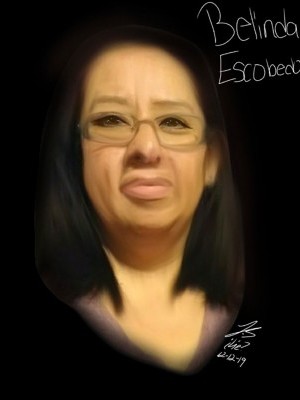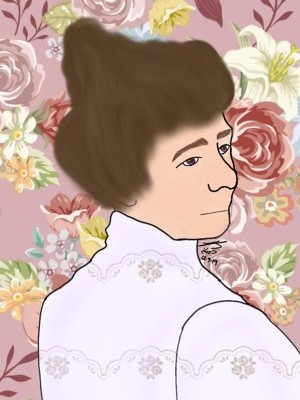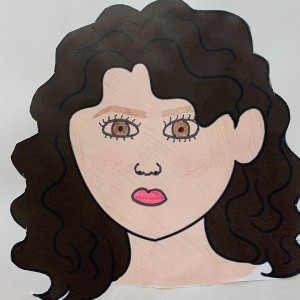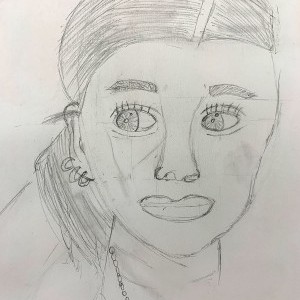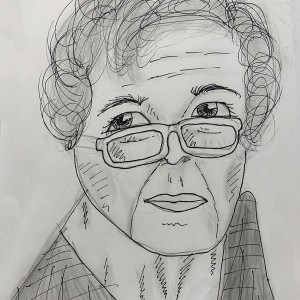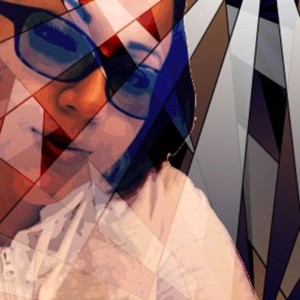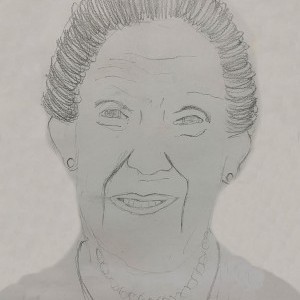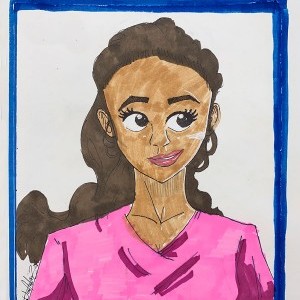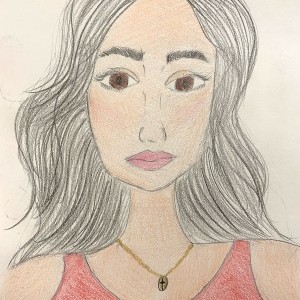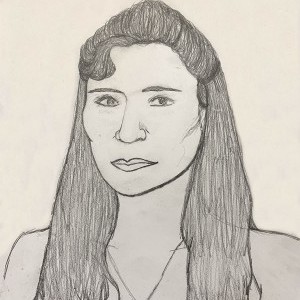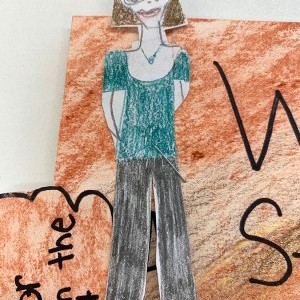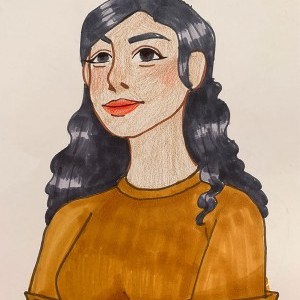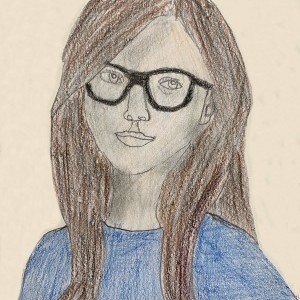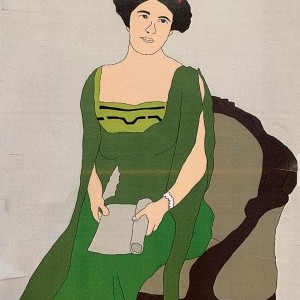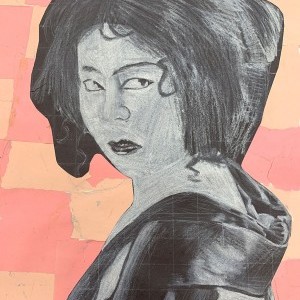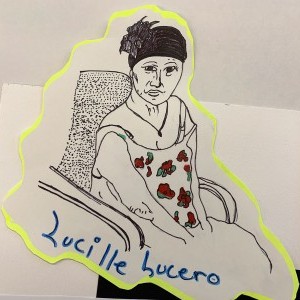Julieana Saenz
Kunsmiller Creative Arts Academy | Denver, CO | 11th Grade
Inspirational Family Member
My Mom Belinda
My mom was 19 when she first voted. She thinks that back when she voted it wasn’t political on topics like it is today. She believes that it’s important to vote and let your voice be heard by others and to speak your mind when you don’t agree with something.
My mom, Belinda, is a woman in her 50s and she still votes. When she first started to vote both her mom and dad, aka my grandma and grandpa, let her vote. My family is Mexican-American, not Latinos or Chicanos. My grandma came from Mexico and my grandpa is from Texas, but was Mexican. My grandpa brought my other grandpa across the river. That grandpa wasn’t a citizen until 1993 and my other grandpa was able to vote since he was born here. My mom has 5 sisters but one passed away at the age of 21. But my Auntie Mary or Maria is the oldest and has been voting. She was born in Mexico but my grandpa made her a citizen when they first moved to the United States. Then, you have my auntie Liz or Elizabeth, my auntie Virgie or Virginia, my auntie Margie, and then my mom. My mom believes that people think it doesn’t matter to vote but in reality it does and all of her sisters, including herself, have voted. My mom wasn’t denied the vote since she was born here and no one in our family was denied their right to vote. My family believes that there's things that need to be changed, the women in my family have voted and are not all Mexicans. My family is also African-American and Native American and they still were able to vote. They believe it’s important to vote to make things better in this society.
Historical Figure I Admire
Emily Wilding Davison
Emily was the daughter of Charles Davison (1848-1893) and Margaret Calsey Davison (1848-1918) and was born at the Roxburgh House on Vanbrugh Park Road, Greenwich, in England, on October 11, 1872. She attended Kensington High School (1885–91) and won a place at Royal Holloway College to study literature. Two years later, she was forced to leave school as her mother wasn’t able to pay the rest of her tuition. Emily began teaching but gave it up to devote herself full time to being a women's rights activist. Emily fought for women’s rights by being part of the WSPU, aka Women’s Social and Political Union, in 1909. She became more and more involved into the militant activities of the WSPU. As a result of her association with the WSPU, Emily was arrested nine times.
Emily was motivated to take a risk to give a petition to Prime Minister Herbert Asquith. Emily was found guilty of disturbance and was sentenced to one-month in prison. She was arrested after four months for trying to go into the London Hall where David Lloyd George was making his speech. Emily went on a hunger strike and was released after five days. In September of 1909, she was sentenced to two months in prison for stone throwing. She was throwing stones and was on hunger strike again. After a few days of being released Emily, Mary Leigh, and Constance Lytton were caught throwing stones at a car that was driving David Llyod George to a meeting in Newcastle. The women were sentenced to hard labor at Strangeways Prison and went on a hunger strike again. The guards then decided to force feed them. After being arrested Emily drew attention to the suffragette campaign by jumping down an iron staircase. Emily landed on wire netting, 30 feet below. This prevented her death but she suffered severe spinal injuries.
Emily Davison began making plans to commit an act that would give the movement maximum publicity. In June 1913, she attended the most important race of the year. She raised a paper and her hand did not shake. Emily suddenly slipped under a rail and a horse that was owned by King George V, hit Emily and the impact fractured her skull. She then died on June 8th without regaining consciousness.
Emily gave up full time teaching to give her full time to the WSPU. Emily also belonged to the Workers’ Education Association. When Emily was arrested she was mistreated in ways that you could imagine in that time period was awful. She fought and fought and wasn’t afraid to take a stand. She was tortured yet still took a stand for women's rights. She took a stand one last time and the life in her left her body but she has not been forgotten. Emily made an impact and now there are more women in office and who stand together for their own rights.
What the Project Means to Me
“We are here, not because we are law-breakers; we are here in our efforts to become law-makers” – Emily Wilding Davison.
Explore the Archive
More From This Class
Click on the thumbnails below to view each student's work.Deadline Extended
There's still time to join Women Leading the Way.
Become a part of our storytelling archive. Enroll your class today.
Join the Project

